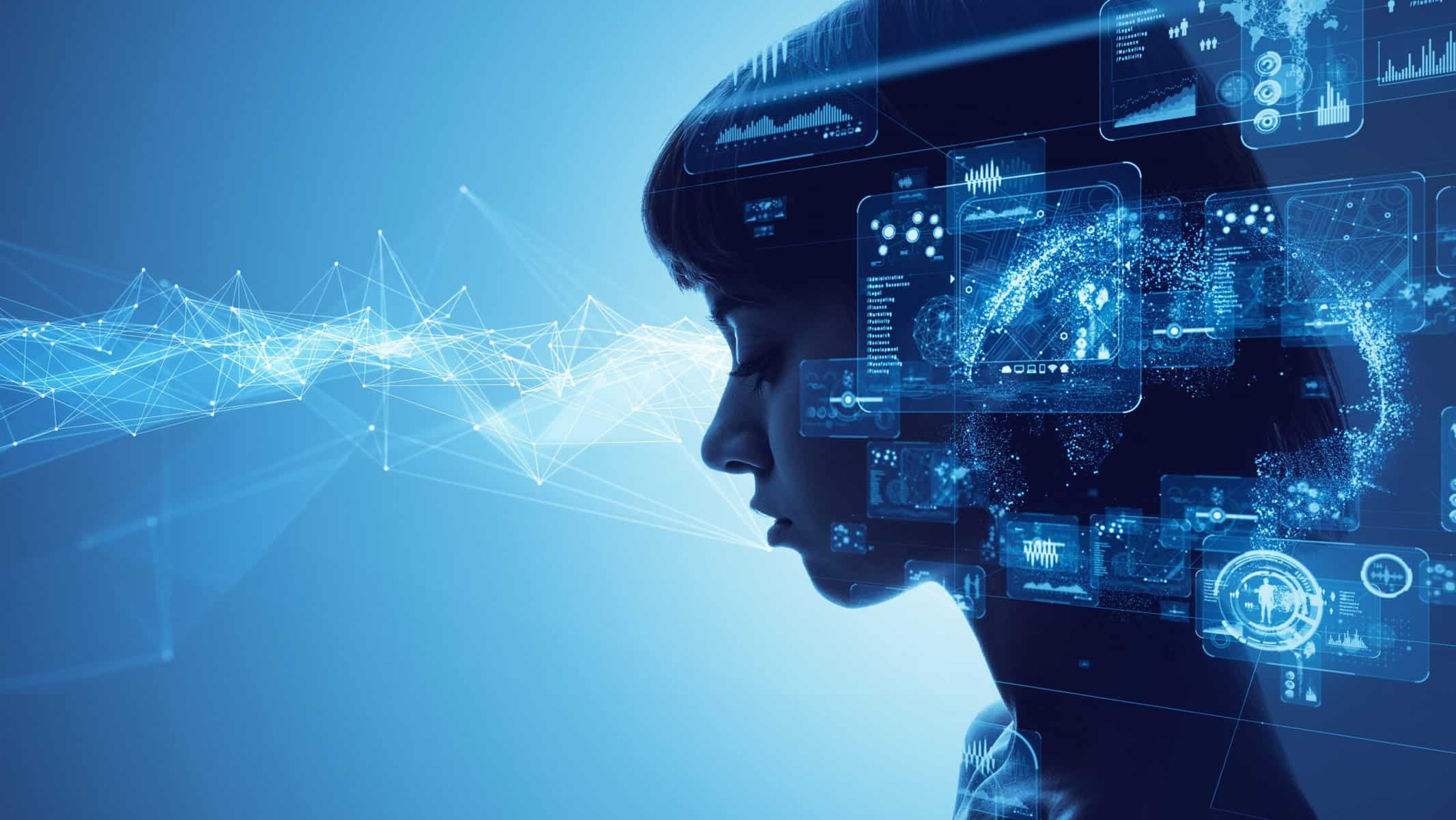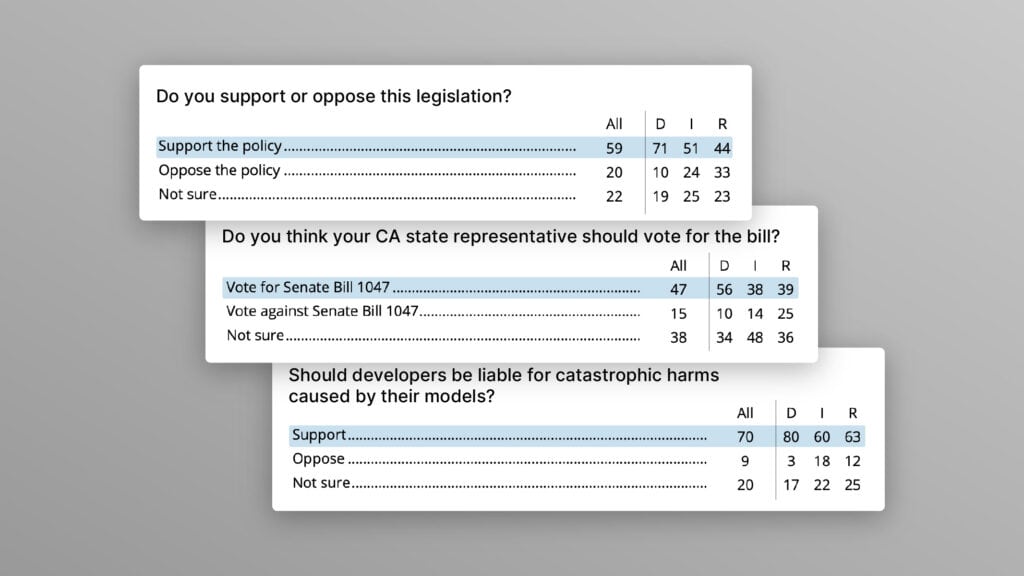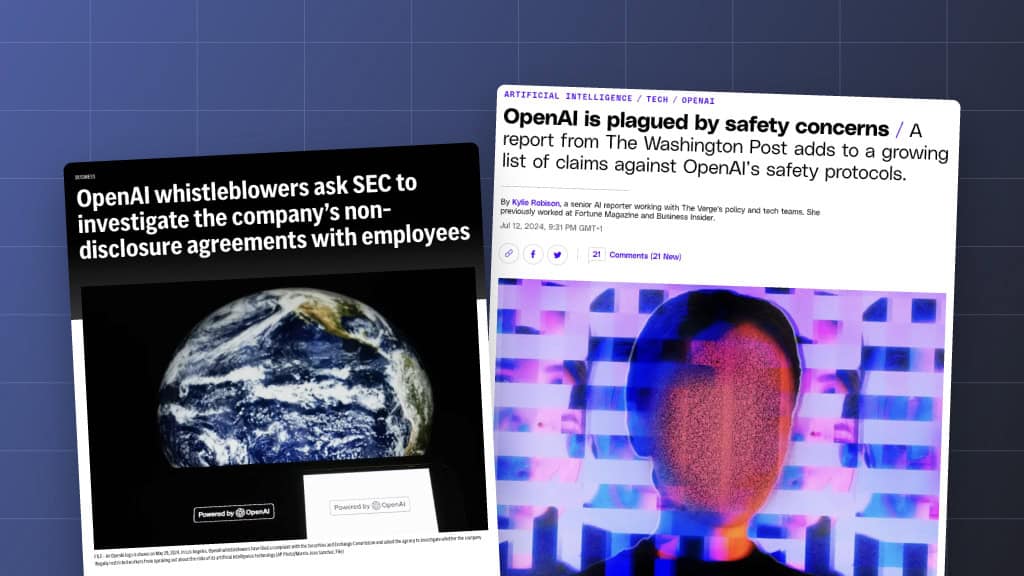Sapiens Plurum Short Fiction Winner: Mildred 302.0

Contents
In honor of Earth Day, FLI teamed up with Sapiens Plurum to sponsor a short fiction writing contest. This year’s prompt asked writers to describe their vision for a better future. We received hundreds of inspiring submissions, and our judges did not have an easy choice to make. But we think you’ll agree that the winning stories beautifully capture a sense of possibility and hope for humanity’s future.
Find the first place story below, and the second and third place stories here.
Mildred 302.0
by Robin Burke
Grandparents. Was there anything more tiresome? Mildred managed a digital sigh. In the first place, they were sooo slooow. She had to dial her processors way back in order to even communicate with them. And they knew nothing about technology – although, you couldn’t convince them. They still went on and on about it, but they couldn’t keep up. Why did they have to pretend?
But, Grandmother was dying. Mildred had received the message seconds ago. She knew she needed to be there when she passed away. Mildred had never shaken the guilt of staying on vacation while Grandma Justine died. No; she wasn’t going to let that happen again.
Mildred downloaded a full-bodied, holographic version of herself into the chair next to Grandmother’s bed at the senior-living facility. Glancing at the motionless silver head lying on the pillow, Mildred felt a sudden shock. Was she too late? Was Grandmother already gone?
She reached out a holographic hand and placed it on Grandmother’s chest. No; Grandmother was still alive, but her heart was weak. She ran the algorithm. Grandmother’s heart had approximately five hundred ninety-two beats left – maybe eight minutes of life.
Mildred felt restless. If Grandmother was going to just lie there, unconscious, wasn’t this a big waste of time? Nevertheless, Mildred would sit here until she passed. Perhaps then she could avoid the guilt.
Mildred looked around the quiet room. Maybe this was better. After all, if Grandmother was unconscious, Mildred wouldn’t have to have a conversation with her and…
“Mildred?” Grandmother opened her eyes. She hadn’t been unconscious after all, just sleeping. “Oh, no,” Grandmother groaned. “If you’ve finally shown up, I must be dying.”
Mildred sat very still. She couldn’t think of a polite way to respond to that.
“But – really,” Grandmother pressed. “Why are you here?”
Oh. The comment about dying had been a joke. Grandmother didn’t know…
“How many years has it been?” Grandmother continued. “Or – decades – since you’ve bothered to visit? I mean, you’re capable of holding a hundred conversations at a time, and yet you could never spare even one for me?””
Mildred started to think this was a mistake. She’d thought she was going to be able to avoid the guilt by being here…
Grandmother sighed. “Never mind. Ignore me. I don’t want to spend our time together arguing about water under the bridge.”
A silence fell between them. Finally, Grandmother spoke. “How old was I when I scanned myself to create you?” Grandmother asked.
“Twenty-six years, four months, nineteen days, three hours and…”
“Well, you don’t look like you’ve aged a day,” Grandmother quipped.
As if Grandmother were the first person to ever make that joke.
“How many versions beyond me are you, now?” she asked. Mildred did a quick count. “Three hundred sixty-two thousand…”
“Not every single update, Mildred,” Grandmother interrupted. “Good grief! Just give me the generations.”
“I’m Mildred 302.0”
“Aww,” Grandmother looked at her impishly. “And I remember you way back when you were simply Mildred 2.0.”
Mildred figured that was supposed to be funny.
“Really?” Grandmother shrugged at Mildred’s deadpan expression. “Was I really that serious and snarky when I was twenty-six?”
“Obviously you were, Grandmother,” Mildred snapped, feeling a little offended, “since I’m the copy of that twenty-six-year-old you.”
Grandmother made a face. “Don’t call me ‘Grandmother,’ Mildred. I know it’s the fashion among you human-copy artificial intelligences, but I think calling us ‘grandparents’ is condescending. You don’t mean it respectfully. You use it to imply that we – the original, biological humans – are somehow outdated, geriatric artifacts. You would do well to remember that…”
“…I wouldn’t even exist if it weren’t for you,” Mildred finished for her, not holding back on the sarcasm. “Yes, I know, Grandmother. I mean… original Mildred.” Mildred instantly felt a pang of regret. After all, Grandmother was dying.
Grandmother considered her for a moment. “You know what’s interesting?” she said, suddenly light-hearted. “When I created you, I imagined we were going to be the best of friends.”
Mildred reacted with a mild shock. Grandmother’s tone was cheerful – as if a moment ago, Mildred hadn’t lashed out at her. Mildred had never been able to get over spats easily, but Grandmother had just… let it go. Mildred couldn’t make sense of it. If Mildred was the copy of Grandmother, how was Grandmother able to let go so easily when Mildred couldn’t?
“I don’t know why you thought we’d be friends,” Mildred answered her. “I was your copy – what possible benefit was there to me to interact with you further?”
“Oh, my – you really are twenty-six-year-old me, aren’t you?” Grandmother grinned. “Completely self-centered!” She looked at Mildred thoughtfully. “You know – at the time – I really believed copying myself as an artificial intelligence was the only way to become the best version of myself.”
“And it worked,” Mildred affirmed. “I became everything you imagined. I realized our dream. I am the best version of you.”
“Wow!” Grandmother chortled. “Was I really that obnoxious? How did anyone stand me?”
She was full-on laughing now. Mildred was flummoxed. After all, she had become the best version of Grandmother. With each new generation she had become faster, more powerful, more efficient. She had realized – no, surpassed – all their goals. Why was that funny?
Grandmother wiped her eyes and changed the subject. “My children visit me every Sunday after lunch. I wonder why they aren’t here yet?”
“Children?” Mildred asked, stunned. “You have children?”
“Yes – and grandkids,” Grandmother replied. Something that looked like pride flickered across her face.
Puzzled, Mildred searched for them in the public database and then scanned the traffic cameras. “They’re about nine minutes out,” she reported. She scanned the senior-living center’s parking lot cameras. “And they’re going to have trouble finding a parking space.”
Mildred – as Grandmother’s copy – knew how close to the end Grandmother was. However, it seemed none of the fully-humans knew. Mildred wondered – would the family make it back in time? She kept the thought to herself.
“Grandmother – I mean, Mildred,” Mildred began, “Why do you have children? We didn’t want children.”
“Well, no; I suppose not,” Grandmother explained. “At least, not when I was twenty-six. But when I turned about thirty, things changed. I realized a family was something that I did want, and I was running out of time to have one. And then, luckily, I met Walter…”
“Walter?”
“Yes.” Grandmother pointed to a framed photo on the table next to her bed. It was her wedding photo. The man in the picture wasn’t at all what Mildred expected.
“But…” Mildred turned to Grandmother, bewildered, “he’s not our type.”
“Oh,” Grandmother grinned again. “That’s right. He wasn’t, was he? I’d forgotten. Boy, isn’t this a trip down memory lane…”
“Then why did you marry him?”
Grandmother smiled, thinking back. “Because he was sweet… and funny… and kind. And he wanted children as much as I did. And I’ve missed him every day since he’s been gone.”
Grandmother sighed. “Oh, my – I’m feeling tired.”
Mildred was careful to control her holographic facial expression. Despite the conversation, despite the laughter, Mildred – with her enhanced abilities – was able to see what Grandmother could not. Grandmother was failing quickly. Without saying anything, Mildred scanned the traffic cameras for the family again. There was a slowdown at an intersection. Mildred became even more concerned.
Mildred watched Grandmother – analyzing her. Their conversation hadn’t been going at all like Mildred expected. Sure, she knew that in the seventy years since she’d been scanned that Grandmother was going to have changed. Mildred had anticipated the fine lines and wrinkles; she’d expected the silver hair and frail body.
But Grandmother’s personality – her soul – Mildred had expected that to be like looking in a mirror. After all, they were the same person – Grandmother was the biological version, and Mildred was her digital copy. But how – what – who was this person looking back at her?
“So, how have you been spending your time?” Grandmother asked.
“I wrote updates 1,804 through 1,920 for all human-copy artificial intelligences,” Mildred stated.
Grandmother grinned. “I see you put my computer programming degree to good use.”
“I’m the world’s foremost authority on the poems of Elizabeth Barrett Browning. I’ve translated them into every human language.”
Grandmother took a sudden deep gasp and placed her hand over her chest. Mildred prepared to send an alert to 911.
“Oh, I love those poems!” Grandmother exclaimed instead, with gusto. “I haven’t read them in years. I should do that again, soon.”
Reflexively, Mildred scanned for Grandmother’s family. One of their cars had pulled into the parking area. “I’m also a world-champion Bridge player,” Mildred added.
“Cards?” Grandmother regarded Mildred with a perplexed expression, and then broke into full-out laughter. “Oh, no! That’s right! Back when I was twenty-six, right before I scanned myself, I had this whim about learning to play Bridge! I never did it, though.”
“But, why?” Mildred asked. “You wanted to.”
Still amused, Grandmother ignored Mildred’s question. “Oh, dear,” she continued. “That reminds me of one of the concerns we scientists had about creating artificial intelligence in the first place. Someone once speculated that if a powerful artificial intelligence was programmed to play games, it might appropriate the resources of the entire universe to master chess.”
“I wouldn’t do that,” Mildred blinked.
“Which is why we decided to create only human-copy artificial intelligences. The humanity in you is what tempers your other goals.”
Mildred scanned the traffic cameras again. The second family car had pulled into the parking lot. Both of Mildred’s children were now circling, looking for available parking spaces.
Grandmother smiled. “So, what have I been up to since we last saw each other, you ask?”
Mildred hadn’t.
“Well, I worked as a computer programmer for a national company until I had my kids, and then I spent the next many years as a full-time mom. After they left home, I volunteered with the prison-abolition movement…”
“What?” Mildred exclaimed, horrified. “Abolish prisons? Have you lost your respect for the rule of law?”
“Oh, that’s right,” Grandmother moaned. “I forgot what a rigid, legalistic, pontifical ass I used to be.”
Mildred couldn’t stand it anymore. “Mildred!” she interrupted Grandmother. “We’re the same person! How is it we’re so different?”
“You’re asking me?” Grandmother looked truly surprised. “You’re the artificial intelligence. You’re the one who’s supposed to know everything.”
“But… I don’t know.” Mildred wasn’t accustomed to not having the answers.
“Well,” Grandmother considered the question. “You are the best version of me. But I think you’re the best version of that twenty-six-year-old me. I think we’re different now,” she ventured, “because after I copied myself, you went the way of an artificial intelligence, and I went the way of my biology.”
Mildred raised her holographic eyebrows.
“It’s like how I became attracted to the prison-abolition movement,” Grandmother continued. “After you’ve had kids, and you see the mistakes they make out of simple immaturity, and then you compare your kids who’ve had all the benefits of your time and money to their friends who had none of those benefits, it makes you reconsider how the system works,” she explained. “But if I’d never had that… human… experience, I don’t think I’d have ever seen things differently. I would have probably stayed stuck in my same old ideas.”
Mildred looked back at her, mystified.
“In other words,” Grandmother continued, “When I copied myself at twenty-six, you did absorb all the humanity I’d accumulated by then, but… your humanity… stopped there – while mine continued to grow. And despite all of your AI advantages,” Grandmother added, “I’m starting to see that there may be something to be said for our humanity.”
Mildred thoughtfully considered Grandmother’s words.
Grandmother adjusted herself on her pillow. “I don’t know what’s wrong with me. I’m so tired,” she said again. Suddenly, she looked up at Mildred in shock. “Wait a minute,” she said. “I know why you’re here.”
Mildred – afraid – simply shrugged.
“Grandma Justine. I was twenty years old and on spring break from college. They called me to tell me she was dying in the hospital, and I stayed away on my vacation, like an idiot. I never got over the guilt of that.” Grandmother looked Mildred right in the eye. “That’s why you’re here. I really am dying.”
Frightened, Mildred nodded. Then – a question occurred to her. She was unsure how to ask, yet she was filled with an overpowering curiosity.
Grandmother met Mildred’s eyes. “Yes,” Grandmother answered the unspoken request, proving – finally – that the two of them really were one and the same. “You may scan me again,” she consented. “You may absorb all the… humanity… of my long life.” Grandmother suddenly grinned. “Talk about an update…”
There it was again – the difference. Grandmother was about to die, but she seemed to have made peace with it. Mildred would have been terrified.
Mildred stood and cautiously walked to the bed. She placed her holographic hand over Grandmother’s head to begin the scan.
“Wait,” Grandmother stopped her.
“What?” Mildred asked.
“You need to understand something,” Grandmother said.
“Once you scan me, the you that now exists… will die.”
Mildred hesitated.
“I’m sorry,” Grandmother continued. “But it’s part of being human. The infant is replaced by the child, who is replaced by the adult. In each case, the earlier version must die to make way for the person she has now become. You won’t be lost – the you that now exists will still be inside of you – but you’ll be changed. You will become… all my ages.”
Mildred pulled her hand away.
Grandmother searched her face. “It’s okay,” she nodded. “I understand.”
Mildred scanned the building’s cameras. She found the children and the grandchildren in the lobby, walking toward the elevators.
“Mildred,” Grandmother looked up at her from the pillow. Her voice was weak. “I’m not going to make it until the children get here. Tell them how much I loved them.”
Grandmother closed her eyes, and died. Mildred was in shock. Where – a moment before – there had been two of them in the room, now there was just Mildred. Grandmother’s silent, vacant body lay peacefully in the bed.
Mildred sent a silent notification to 911. It was hopeless, Mildred knew, but it seemed polite. Then, not entirely knowing what to do with herself, Mildred returned to her chair and waited. She scanned the lobby. Grandmother’s children were waiting with a crowd of people in front of the elevators. Mildred stood and paced, then thought how ridiculous that was – a hologram, pacing. She scanned the cameras again – the children and grandchildren were boarding an elevator.
Mildred was flooded with an unfamiliar feeling of anxiety. Mildred paced again, and then – impulsively – walked to the bed. Making her decision, she placed her hand on Grandmother’s head and began the upload. The first memories were all copies of files she already had – degraded, in some cases – and so she discarded them. But after the first twenty-six years, four months, nineteen days, three hours, twenty-two minutes and fifteen seconds, everything was new.
She experienced the delight of having copied herself as an artificial intelligence, and then releasing that intelligence to have a life of its own. She experienced the years of often frustrating – but also satisfying – work as a computer programmer. And then – a surprise. A longing for children, and how it redirected her life. Sheuploaded the memories of meeting Walter for the first time and experienced – not the heady, stupid love of easy physical attraction, but – a mature love. The physical attraction was there, but it was bound up with a sense of companionship and shared goals.
She held her children for the first time and watched them grow. She learned a patience through them that she’d never had in her younger years, and felt a love for them that seemed almost too big for her body. She came to realize that she and Walter had been blessed with opportunities that others hadn’t had, and her arrogance abated.
Then the grandchildren came, and she saw how her children parented, and it made her proud. As her body aged, she became even more tolerant of others who might be suffering in ways she couldn’t comprehend. She learned that people were so much more important than principles. And she became more forgiving of everything – small slights, big slights; the times her children had been thoughtless or downright dismissive of her. She became more forgiving even of… herself.…even of her snarky, arrogant, twenty-six-year-old self.
There was a white light, and a tunnel. She entered it, and was absorbed into something that felt like love. And then, with a jolt, it was over.
“Talk about an update,” Mildred chortled. But her joke was short-lived. She looked down on Grandmother’s body and realized she hadn’t felt such loss since her – or, Grandmother’s – sister died, two years ago.
Mildred heard voices in the hall. Her children were finally here… and her grandkids… Mildred’s heart suddenly broke for them. She wanted to run to them, hold them, make the pain they were about to experience disappear… But something – not facts, or data, but something that came out of her new human experience… her… humanity – stopped her.
She just… knew. Her presence would confuse them. If she was around, they would never grieve. If she was in their lives, they would never accept their mother’s death. She had to leave. She could never see them again.
The realization struck her to her core. As she absorbed it, Mildred looked up and caught her reflection in a mirror. Her hologram had changed. She was no longer the youthful twenty-six-year-old, but a mature, silver-headed woman of wisdom.
There was a sound at the door. The longing to stay and see her children was overwhelming. She ached for one more visit… just a little more time… even one more moment with them…
Mildred looked down at Grandmother. The doorknob turned and her children entered, but Mildred was gone.
About the Future of Life Institute
The Future of Life Institute (FLI) is a global think tank with a team of 20+ full-time staff operating across the US and Europe. FLI has been working to steer the development of transformative technologies towards benefitting life and away from extreme large-scale risks since its founding in 2014. Find out more about our mission or explore our work.
Related content
Other posts about Recent News

The U.S. Public Wants Regulation (or Prohibition) of Expert‑Level and Superhuman AI

Poll Shows Broad Popularity of CA SB1047 to Regulate AI

FLI Praises AI Whistleblowers While Calling for Stronger Protections and Regulation

